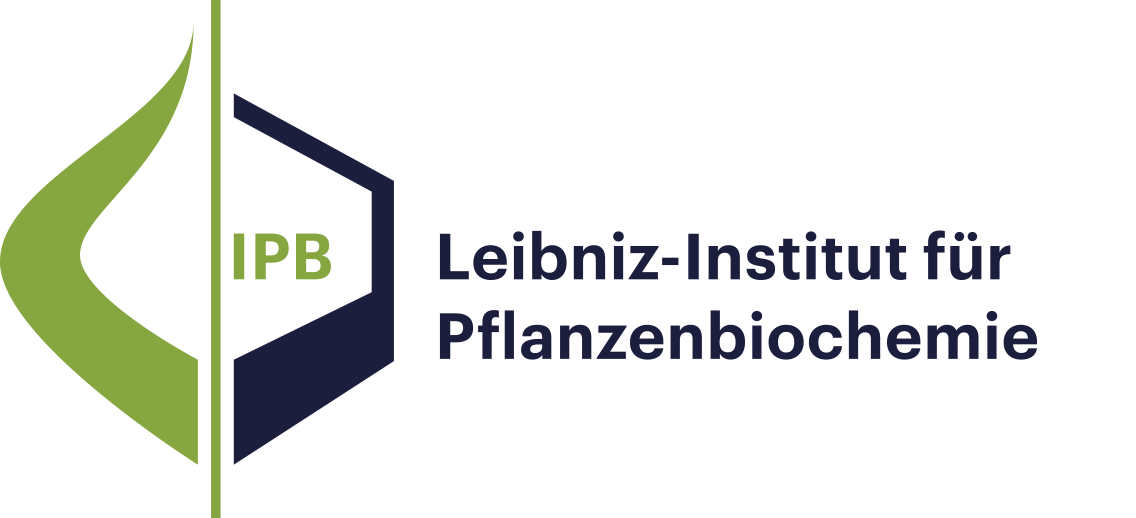- Ergebnisse als:
- Druckansicht
- Endnote (RIS)
- BibTeX
- Tabelle: CSV | HTML
Publikation
Publikation
Publikation
Leitbild und Forschungsprofil
Molekulare Signalverarbeitung
Natur- und Wirkstoffchemie
Biochemie pflanzlicher Interaktionen
Stoffwechsel- und Zellbiologie
Unabhängige Nachwuchsgruppen
Program Center MetaCom
Publikationen
Gute Wissenschaftliche Praxis
Forschungsförderung
Netzwerke und Verbundprojekte
Symposien und Kolloquien
Alumni-Forschungsgruppen
Publikationen
Publikation
Cytosolic Ca2+ ([Ca2+]cyt) elevation is an early signaling response upon exposure to pathogen-derived molecules (so-called microbe-associated molecular patterns, MAMPs) and has been successfully used as a quantitative read-out in genetic screens to identify MAMP receptors or their associated components. Here, we isolated and identified by mass spectrometry the dipeptide γ-Glu-Leu as a component of a Phytophthora infestans mycelium extract that induces [Ca2+]cyt elevation. Treatment of Arabidopsis seedlings with synthetic γ-Glu-Leu revealed stimulatory effects on defense signaling, including a weak enhancement of the expression of some MAMP-inducible genes or affecting the refractory period to a second MAMP elicitation. However, γ-Glu-Leu is not a classical MAMP since pH adjustment abolished these activities and importantly, the observed effects of γ-Glu-Leu could be recapitulated by mimicking extracellular acidification. Thus, although γ-Glu-Leu can act as a direct agonist of calcium sensing receptors in animal systems, the Ca2+-mobilizing activity in plants reported here is due to acidification. Low pH also shapes the Ca2+ signature of well-studied MAMPs (e.g. flg22) or excitatory amino acids such as glutamate. Overall, this work serves as a cautionary reminder that in defense signaling studies where Ca2+ flux measurements are concerned, it is important to monitor and consider the effects of pH.
Publikation
Site-directed methods for the generation of genetic diversity are essential tools in the field of directed enzyme evolution. The Golden Gate cloning technique has been proven to be an efficient tool for a variety of cloning setups. The utilization of restriction enzymes which cut outside of their recognition domain allows the assembly of multiple gene fragments obtained by PCR amplification without altering the open reading frame of the reconstituted gene. We have developed a protocol, termed Golden Mutagenesis that allows the rapid, straightforward, reliable and inexpensive construction of mutagenesis libraries. One to five amino acid positions within a coding sequence could be altered simultaneously using a protocol which can be performed within one day. To facilitate the implementation of this technique, a software library and web application for automated primer design and for the graphical evaluation of the randomization success based on the sequencing results was developed. This allows facile primer design and application of Golden Mutagenesis also for laboratories, which are not specialized in molecular biology.
Publikation
Potato plants treated with the pathogen-associated molecular pattern Pep-13 mount salicylic acid- and jasmonic acid-dependent defense responses, leading to enhanced resistance against Phytophthora infestans, the causal agent of late blight disease. Recognition of Pep-13 is assumed to occur by binding to a yet unknown plasma membrane-localized receptor kinase. The potato genes annotated to encode the co-receptor BAK1, StSERK3A and StSERK3B, are activated in response to Pep-13 treatment. Transgenic RNAi-potato plants with reduced expression of both SERK3A and SERK3B were generated. In response to Pep-13 treatment, the formation of reactive oxygen species and MAP kinase activation, observed in wild type plants, is highly reduced in StSERK3A/B-RNAi plants, suggesting that StSERK3A/B are required for perception of Pep-13 in potato. In contrast, defense gene expression is induced by Pep-13 in both control and StSERK3A/B-depleted plants. Altered morphology of StSERK3A/B-RNAi plants correlates with major shifts in metabolism, as determined by untargeted metabolite profiling. Enhanced levels of hydroxycinnamic acid amides, typical phytoalexins of potato, in StSERK3A/B-RNAi plants are accompanied by significantly decreased levels of flavonoids and steroidal glycoalkaloids. Thus, altered metabolism in StSERK3A/B-RNAi plants correlates with the ability of StSERK3A/B-depleted plants to mount defense, despite highly decreased early immune responses.

